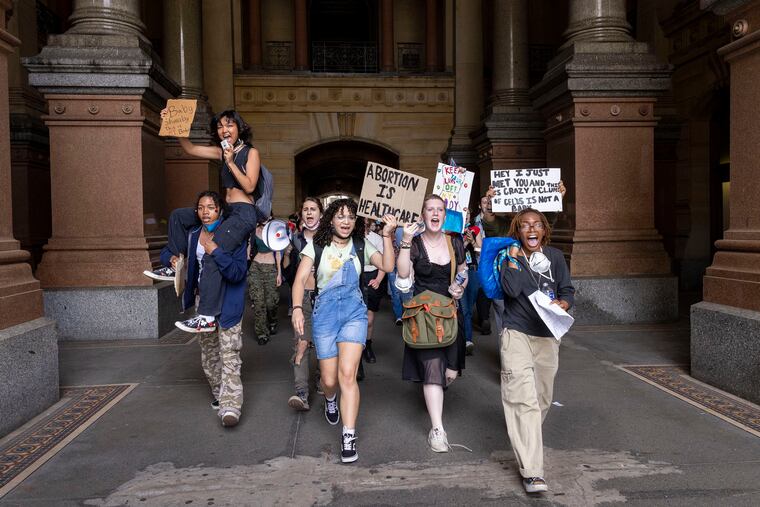Antiabortion activists can’t stop Philadelphia’s $500K donation to a group that funds abortions, judge rules
The PA Pro-Life Coalition backed a lawsuit against the city, which earlier this year made a donation to the Abortion Liberation Fund of PA in wake of the overturning of Roe v. Wade.

Antiabortion activists who sued the City of Philadelphia over a donation it made to a group that funds abortions can’t stop the nonprofit from spending the money, a judge ruled Wednesday.
In denying the PA Pro-Life Coalition’s emergency request to freeze the $500,000 donation, Common Pleas Court Judge Joshua Roberts cast doubt on the entire lawsuit brought by the group and two of its affiliates who are Philadelphia residents — but he did not outright dismiss it.
Charles and Theresa Kuhar sued the city in August after Mayor Jim Kenney announced his administration had made a donation to the Abortion Liberation Fund of PA, a group that provides financial assistance to patients seeking abortions. They said that as taxpayers, they have standing to challenge the city’s use of public funds.
In asking the judge to halt the donation, attorneys for the Kuhars said he move violated state and federal law that prevents taxpayer dollars from being used to fund abortion care.
But Philadelphia has no such ordinance. And by the time the Kuhars filed suit in August, the funds had already been disbursed to ALF-PA.
The plaintiffs filed a new lawsuit weeks later, backed by the nonprofit PA Pro-Life Coalition and naming the Abortion Liberation Fund as a defendant. They asked a judge to rule that the donation was improper and to freeze it pending the outcome of the litigation, which could take months or longer to be resolved.
During a hearing last week, Roberts was unconvinced the plaintiffs had standing to halt the activities of ALF-PA, a private organization engaging in legal activity. He wrote in his denial that if the plaintiffs are ultimately successful in their lawsuit, “an appropriate remedy” can be decided at that time.
» READ MORE: Can abortion be legislated at the local level? The women on Philly Council are pressing for new protections.
Thomas Breth, an attorney for the plaintiffs who works with a Chicago-based firm that takes on conservative social issues, argued during the hearing that the city, which made the donation out of its general fund, can’t prove that it did not use state or federal dollars to make the donation.
The city’s general fund is made up of co-mingled funds: local tax revenue, state and federal grants, and a variety of other funding sources. Those funds aren’t segregated within the larger pot of money.
“They put their funds in with all the other funds and are saying ‘just trust us,’” Breth said.
Deputy City Solicitor Aimee Thomson said that’s not how the funds work. She likened the general fund to accounts used by lawyers to hold clients’ money: When they put in money from multiple clients, then take out money to go to a specific client, it’s assumed they’re taking out that client’s money.
“When a party puts money into a fund that is co-mingled,” she said, “it’s presumed they are taking out their own money.”
And Stephen Loney, senior supervising attorney for the ACLU of Pennsylvania and co-counsel on the case, said in a statement that the city’s contribution came from municipal funds and that the lawsuit has “no grounding in actual law.”
“We are here only because they are opposed to abortion,” he said. “They want to make it as difficult as possible for people to access abortion, including people in financial need who need the care but cannot afford it.”
Roberts said in his denial that it’s not up to the city to show that it didn’t use state or federal funds. It’s up to the plaintiffs to prove that it did.
“There is zero authority to support Plaintiff’s rationale,” Roberts wrote. “Plaintiffs chose to bring this suit. Plaintiffs have the burden of proof at all times.”
The Kuhars and the PA Pro-Life Coalition are appealing the decision to Commonwealth Court.